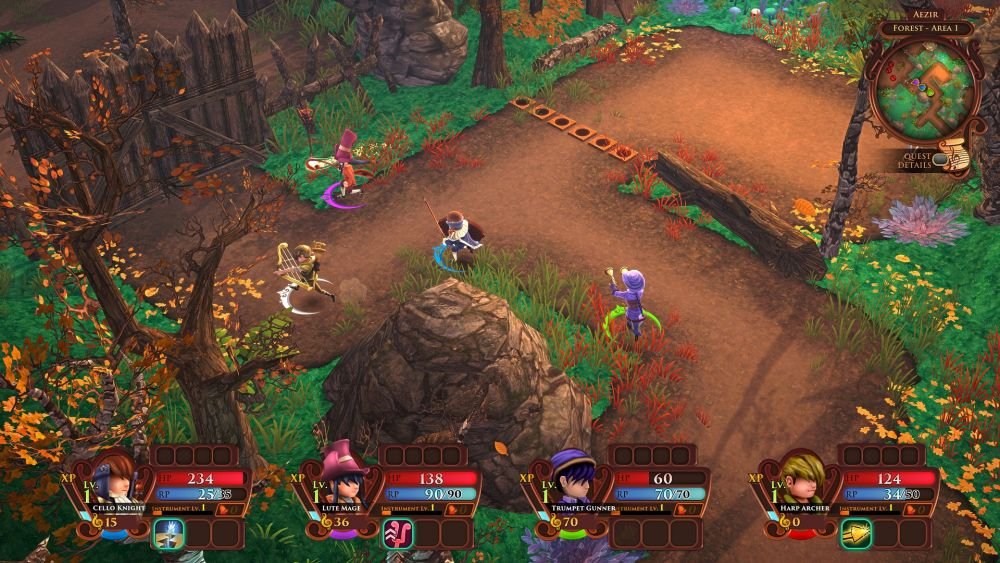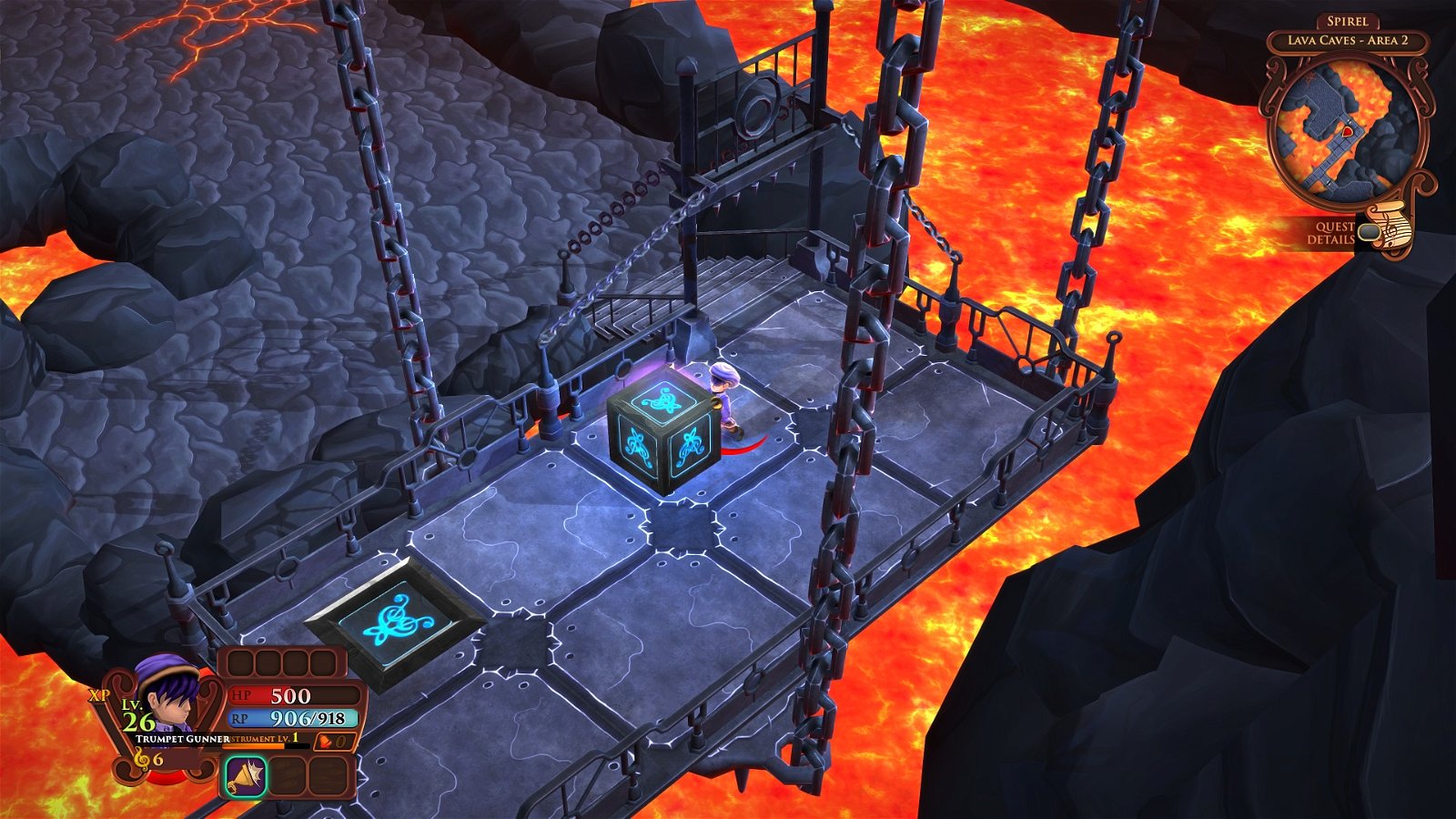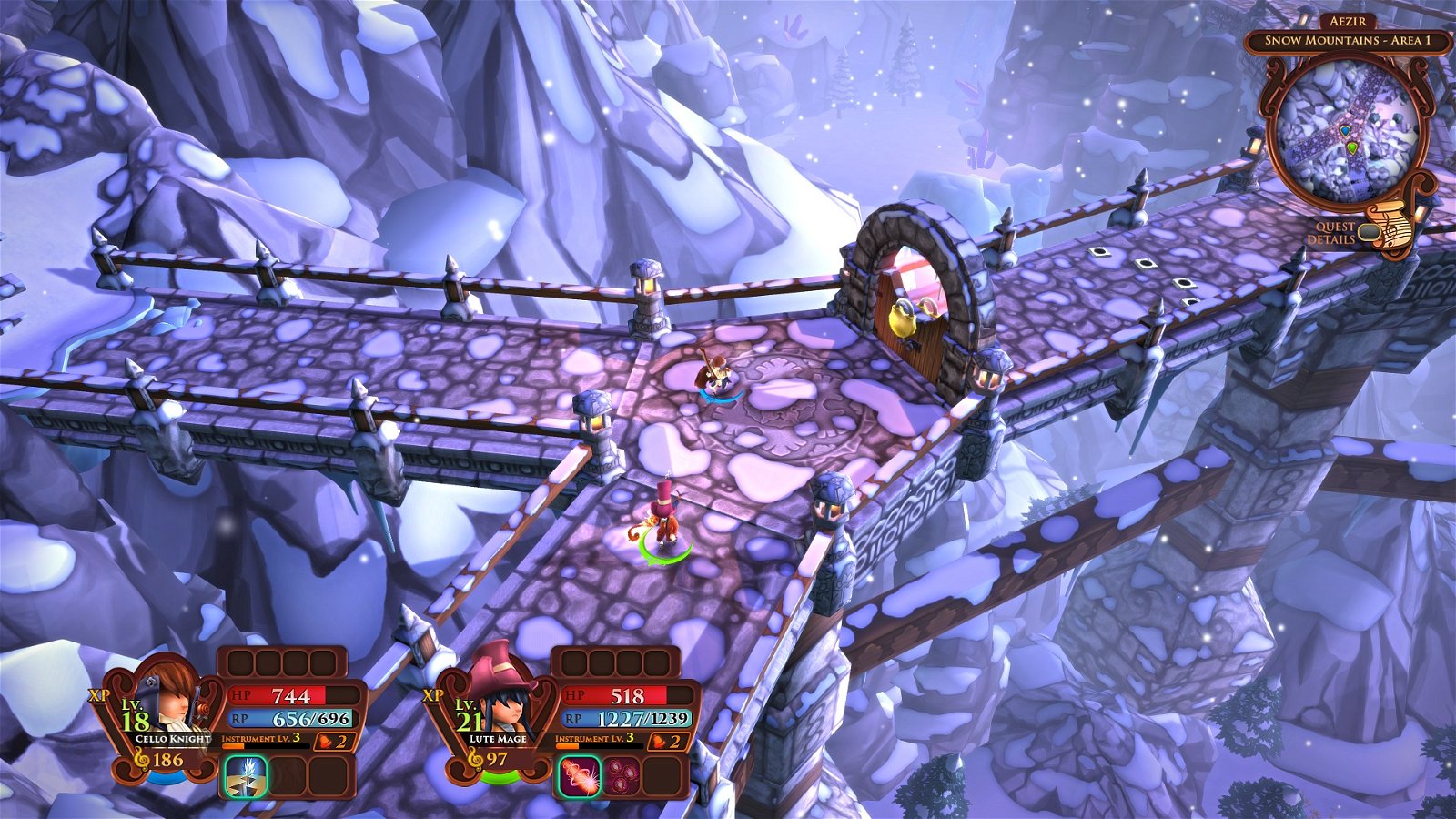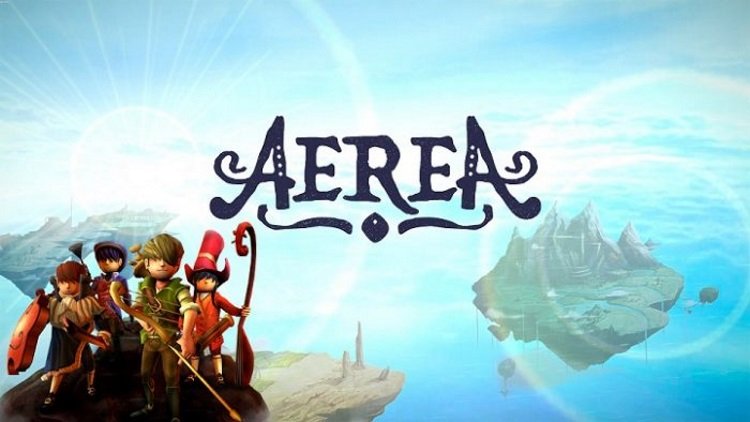A musically themed RPG featuring characters that use instruments as weapons is a neat idea. In fact, it’s pretty damn cool. However, that’s about where AereA‘s originality ends. It feels like a generic RPG and its gameplay is easy to the point that it’s boring. Its original concept, unfortunately, does not make up for its lackluster gameplay and world design.
Game Name: AereA
Platform(s): PC, PlayStation 4, Xbox One
Publisher(s): Soedesco
Developer(s): Triangle Studios
Release Date: June 30, 2017
Price: $29.99

There are four playable characters to choose from, each with their own instruments and skills. Players must seek the stolen primordial instruments to restore harmony to the world of AereA. This is accomplished by completing quests to reach the next boss fight, of which there are nine. As a student of music, a concert hall functions as the central hub for travel, upgrading skills and instruments, and getting new missions.
I became most comfortable with the cello player, as their melee attacks were easier to land than the long-range-attack characters. This is especially true for when you must break crates and vases to get items. Each time you load a save file, you can choose a new character. The game keeps track of your progress and levels, making it easy to jump between the characters. In addition, AereA allows up to four local players in its co-op mode. It’s a nice feature, but it hardly seems necessary when the game is this easy.
Players will explore different areas on the map to complete the quests, but none of these areas are very exciting. The environments feel the same when unlocking gates, moving boxes, avoiding spikes, and pulling levers are the sole mechanics used in all of them to progress. You will have to do these same tasks over again if you return to a region, making them especially dull.

Encountering enemies in the world of AereA feels much more like a nuisance than a challenge. The creatures can be defeated in just a few hits, and more will respawn in the same places when backtracking through a region. Even the boss fights are simple. Usually, the same kinds of attacks used on smaller enemies will get the job done during boss fights, the only difference being their increased health bar.
Finally, the characters are frustratingly slow. Running past the enemies is not an option when they are the same speed as the characters. Their slow movements become especially apparent when you have to move back and forth across a region to complete quests. Even at the concert hall, there are some quests that consist of talking to different characters and fetching/returning items. In fact, most of them were fetch-quests and not very exciting. Running between NPCs in the unnecessarily large map is a drag, and regions feel even larger with these slow characters.
The regions of AereA vary only by their appearance. You will go through a forest region, snow region, a lava stage, and more. It almost feels predictable, and while the world of AereA is not ugly, it is not very creative. You are faced with the same obstacles in each region – opening gates, pulling levers, and defeating enemies to progress. The mechanics are not original, and it is especially boring when you must do the same tasks over again if you return to a location because the game does not remember your progress. The different climates and conditions do little to affect the gameplay in different areas.

However, the concert hall is impressively detailed. Everything down to the wood floors and rugs were beautifully designed. If the same care and detail were given to all the regions, AereA might be an incredibly beautiful game. Once again, it is not an ugly game, but environments outside the concert hall were far from extraordinary.
AereA‘s soundtrack is one of its strongest features, which is certainly important in a game that uses music as its central theme. Each song is memorable and complements the mood well, but this might only be appreciated by the classical music fans. Still, it cannot be denied that it puts a lot of life into an otherwise bland world.
On top of its soundtrack, the instruments used in combat produce musical notes when equipped. This feature is best enjoyed when having multiple players in co-op mode. The notes from each player’s instrument create a weird chaotic melody on top of the soundtrack, and somehow it works. If only the combat were more interesting, playing AereA could be quite the unique experience.
*AereA was provided to us by SOEDESCO for review purposes. For more information on how we review video games and other media/technology, please go review our Review Guideline/Scoring Policy for more info.
Summary
AereA takes the original concept of a musically themed RPG but doesn’t do much with it. The combat is too easy, and exploring different regions is unexciting. While there are a few pieces that stand out, none of them make up for an overall dull experience. What could have been a unique game is, unfortunately, a boring one.
Pros:
- Original concept for an RPG
- Nice classical soundtrack
Cons:
- Mostly dull world design
- Combat is too easy
- Characters are frustratingly slow
-
Witty sentence here and the score. remember to use the star system!


